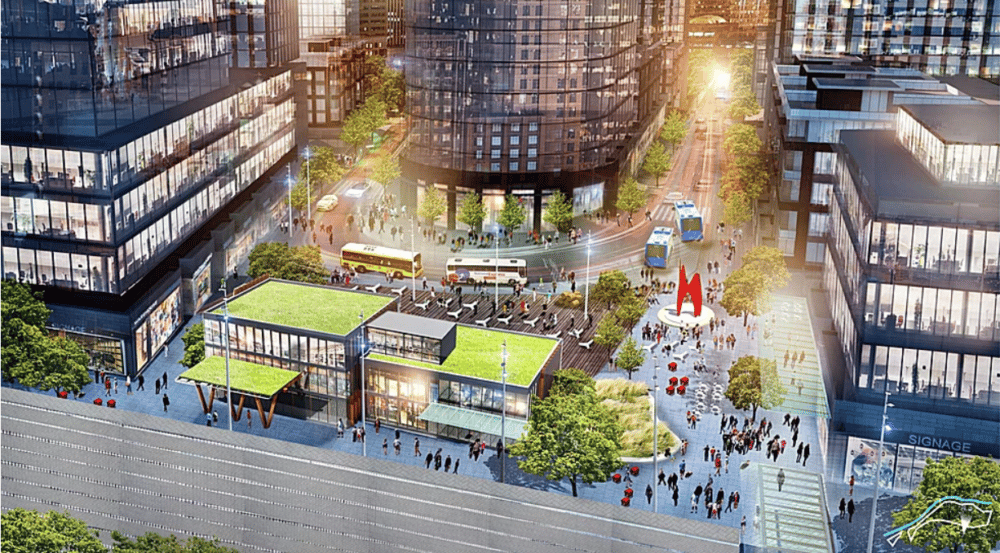TIMELINE: What has to happen before River Mile gets built.
Detailed promises for below-market rental and for-sale housing were included in the proposal to transform the Elitch Gardens site that got a unanimous go-ahead Monday from Denver City Council, which also amended the municipal code in hopes of encouraging more such pledges from developers.
Some 8,000 residential units are envisioned as part of River Mile, according to documents submitted in support of the proposal to eventually replace Elitch Gardens and its parking lot with a mixed-use neighborhood of high rises as well as places to play along the South Platte River.
Rhys Duggan, whose Revesco company owns the site, envisions developing River Mile over 25 years.
Timothy Boers, chairman of the Highland United Neighbors Planning and Community Development Committee, supported the development in a letter filed with the city and in comments Monday, saying it put "density where density makes sense -- on underutilized parking lots -- and will lessen the pressure for established neighborhoods like Highland to accommodate our city's growing population."
The Downtown Denver Partnership also supported the plan. Opponents, including mayoral candidate Chairman Seku, who spoke during public comment periods Monday questioned whether the project would serve low-income Denverites and address homelessness, and raised concerns about gentrification.
River Mile's supporting documents referred to the city's goal of channeling growth where it can improve access, using fewer and shorter car trips, to housing, services and jobs. River Mile is in an area adjacent to downtown, which has an estimated 100,000 workers.
Of the 8,000 anticipated housing units, 15 percent are to be rented or sold at below-market rates. To ensure families aren't left out, a two-bedroom apartment or home would count as 1.5 units and a three-bedroom 2.5 units. At least 30 percent of the affordable units will have at least two bedrooms, according to the Affordable Housing Plan that Duggan's Revesco had to write to get approval to build more than five stories in River Mile.
The housing plan requirement for large projects was codified in a change in municipal regulations that City Council adopted Monday for an area bounded by the Auraria higher education campus, LoDo and downtown and Highland and Jefferson Park. The code change also requires that affordable housing units be built onsite and increases the necessary units as compared with the number under rules in other parts of town.
Revesco's proposed project is on 58 acres is in the area of more than 120 acres to which the new affordable housing plan requirement applies. Revesco had developed its plan before council adopted the changing, meeting requirements it has been clear were coming and with which all developers interested in the area now will have to grapple.
Duggan told the council Monday his that his proposal was "the most comprehensive affordable housing plan undertaken in the city to date."
Such plans are usually optional but often part of development projects in Denver. The affordable housing requirement was outlined by principal city planner Abe Barge at a meeting last month of the City Council committee on land use, transportation and infrastructure, which sent the whole River Mile proposal to the full council for approval. Speaking to the full council on Monday, Barge described an effort to leverage the value created by allowing taller buildings for affordable housing.
"Denver has a lot of needs," Barge said. "The primary one that we're talking about now is affordable housing."
The below-market housing would stay affordable for at least 40 years under covenants. At least 40 percent of the affordable units will be set aside for families earning up to 60 percent of the area median income, and of those 25 percent will be for people making no more than 30 percent AMI. The remainder will be for people making at least 80 percent AMI, with 10 percent of those available for sale for people making 100 percent AMI.
Most of the affordable housing would be mixed in with market rate housing and low-income residents would have access to all the amenities available in the planned towers. But according to the plan, residents earning 30 percent or less of AMI may inhabit a dedicated building, which would allow developers to take advantage of tax credits and other strategies that support housing for people earning very low incomes.
Revesco also agreed to pay fees on non-residential development to support either affordable housing or community services.












